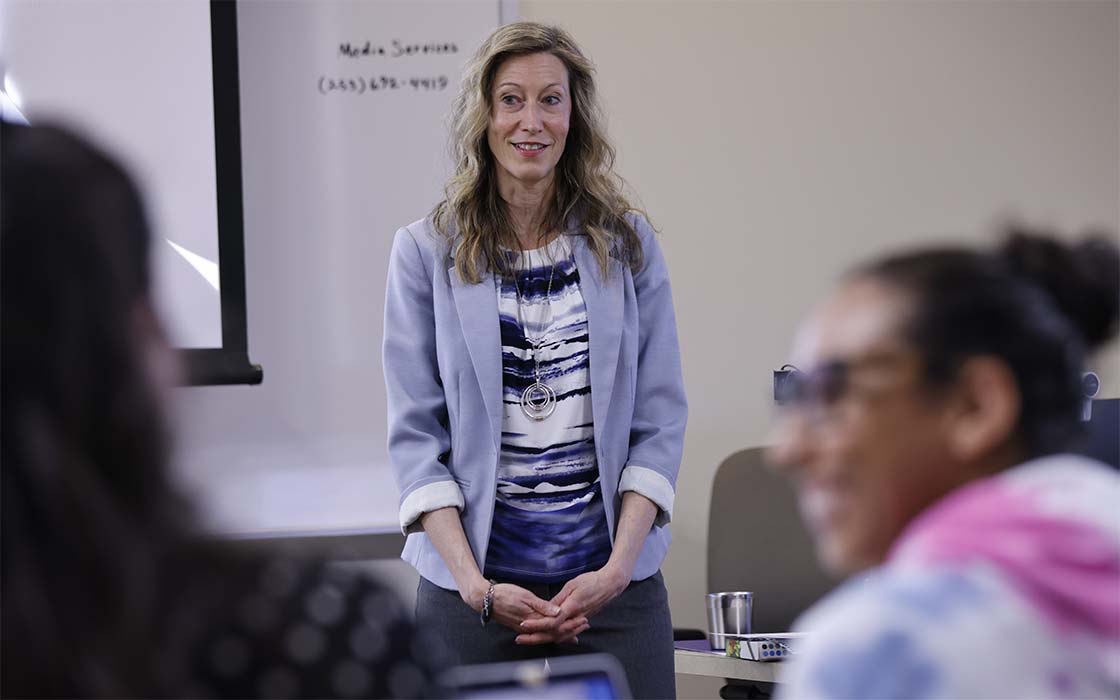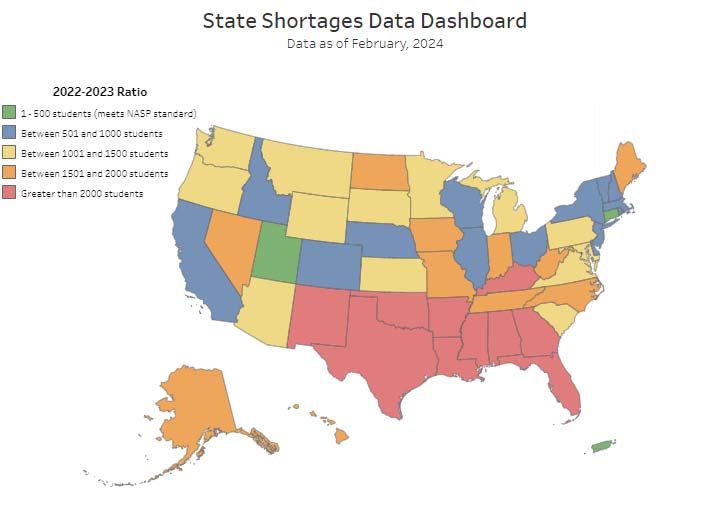
New Education Specialist program graduates first cohort
In 2021, the University of Washington Tacoma School of Education launched a new Education Specialist degree (Ed.S.) in school psychology. It’s a graduate-level program that reflects a more comprehensive philosophy on the role of school psychologists in schools than many programs of its kind.
On June 7, the three-year program’s first cohort graduated and entered the workforce. It’s a big milestone for the students and for Professor Laura Feuerborn, director of the program, who took the lead on creating the Ed.S. program seven years ago.
“I have been honored to witness the program — one of the few nationally that focus on promoting anti-racism, collaboration, equity and inclusion — thrive under Dr. Feuerborn's exceptional leadership,” said Dean Rachel Endo. “The inaugural cohort of students are equity-minded practitioner-scholars who will make a significant impact in our PK-12 schools and surrounding communities.”
This first cohort is a big milestone for the students and for Dr. Feuerborn, who took the lead on creating the Ed.S. program seven years ago. The program launched with the help of the Dean of the School of Education, Dr. Rachel Endo; School of Education faculty Drs. Kawena Begay, Kathy Beaudoin, and Miranda Kucera; and School of Education Advisor Ashley Walker.
Taking the emphasis off assessment
Dr. Feuerborn, who has a Ph.D. in school psychology from the University of Oregon, was first hired at UW Tacoma in 2006. Years later, she heard murmurs that a school psychology program was being proposed at UWT, at that point under a different administration.
“I was living in China during my sabbatical, and someone told me, ‘I don't think you'll like the way they're trying to do it,’” said Dr. Feuerborn.
According to research conducted by the Washington State Association of School Psychologists (WSASP), most school psychologists in Washington are primarily tasked with administering assessments, like IQ tests, despite being equipped to provide a wider range of much-needed services.
“School psychologists are trained in mental health, social-emotional learning, crisis prevention and response, academic interventions, consultation, systems change, and in building infrastructure for equitable discipline,” said Dr. Feuerborn. “They’re really leaders and direct service providers, but in my experience in Washington, they're not being fully utilized.”
A shortage of school psychologists across the nation, and especially in Washington state, exacerbates their narrow roles in schools. “In this region, there are far fewer school psychologists than we need. Evaluations and assessments are all they have time to do,” said Dr. Feuerborn.
Unfortunately, when assessment is overemphasized, it can leave school psychologists unsatisfied with their work and often perpetuates systemic inequities that have plagued schools for some time. As it stands, according to the National Center for Learning Disabilities, students of color, with the exception of Asian students, are disproportionately identified for special education as compared with their White peers, suggesting there are major biases at play. As a word of caution, the label 'Asian' includes many groups of people with diverse experiences, histories and identities. There is a need across systems to split up data to better understand the complex needs of these many different groups.
“School psychology has a problematic history of not being culturally responsive, or being deficit-focused. We’re trying to work against that, because it’s not inclusive or equitable to go into school and start identifying what's wrong with people,” said Dr. Feuerborn.

Redefining School Psychology
With this in mind, Dr. Feuerborn developed the Ed.S. in alignment with the newly-revised National Association of School Psychologists’ (NASP) standards, which also consider the work of a school psychologist to be more diverse than administering evaluations to kids. The UW Tacoma Ed.S. program was the first in the nation to be reviewed by NASP under these new standards. The goal of the Ed.S. program is not only to produce great school psychologists that center equity and data-based decision making, but hopefully to change the perceptions of the field in the community.
In the Ed.S. program, graduate students are taught how to assess and write reports, and they learn about child and adolescent development; how to create systems that support a child’s social, emotional and behavioral health; and how to provide interventions for students using a culturally responsive lens. In years two and three, students then apply their coursework in a practicum and internship in school districts in the surrounding area.
The program’s internship and practicum opportunities were sowed carefully by Dr. Feuerborn and her colleagues, who consistently reach out to the surrounding community to share the Ed.S. philosophy, transform perceptions of school psychology, and create lasting partnerships.
“The values of this program are really strengths-based. It’s about prevention, culturally responsive practices, and partnering with school communities to serve in ways that make a positive impact,” said Dr. Feuerborn. “Now we are having our practicum students and interns go out into the schools with this new concept of practice. So, part of my job is to make sure our partners are satisfied, our students are satisfied, and our instructors are satisfied.”
Prepared to Make an Impact
Though they’ve had to navigate cultural and philosophical differences about their roles from district to district, Seonyeong Kim and Daniel Akamine — two students in the first cohort — have been satisfied with their practicums, internships, and time overall in the program.
Kim first applied to the Ed.S. because she wanted to support kids from minoritized backgrounds and eventually take her skills back to her home country of Korea.
“In Korea, education is very competitive and I don't think students learn to cope. I saw so many of my friends suffering from mental health problems,” said Kim. “So, in the long-term, I hope to bring positive systems-level change in the U.S. and, eventually, Korea.”
In the beginning of the Ed.S. program, Kim was a bit overwhelmed by the breadth of information she and her peers had to learn, but now, after she has finished her third-year internship with Clover Park School District, she’s feeling well-equipped to make an impact as a school psychologist precisely because of the program’s comprehensiveness.
“I could practice advocacy, through assessments, consultation, and collaboration with families, in my internship. I started to feel confident and proud of myself and I could really see myself as a school psych. And that's when I started to see okay, we learned all this all this stuff and now I can apply it,” said Kim.
Likewise, Akamine said he “really enjoyed” his practicum experience with Tacoma Public Schools, which allowed him to try a variety of approaches including implementing and co-leading small group counseling for students with ADHD, and how to administer an FBA, or functional behavior assessment. He completed his internship with Franklin Pierce School District.
Having graduated in June, this first cohort has met the requirements for initial certification as a school psychologist in the state of Washington, setting them up to enter the workforce. Sure enough, Akamine and Kim already have job offers they’re considering.
“I would say it's been a very experimental process with a lot of collaboration. As the first cohort, we were in uncharted waters,” said Akamine. “But I do feel positive. I think they really prepared us.”



